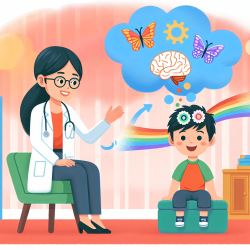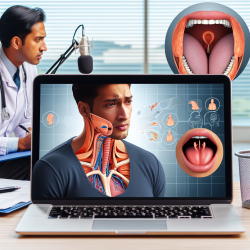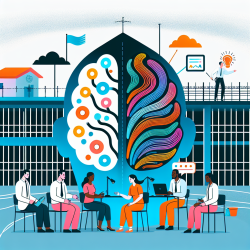Introduction
In the evolving landscape of speech-language pathology, the intersection of open science (OS) and intellectual property (IP) presents both opportunities and challenges. The research article "Open Science in Play and in Tension with Patent Protections" provides valuable insights into how these dynamics can be navigated effectively. This blog aims to help practitioners in the field of speech-language pathology improve their skills by implementing the outcomes of this research or by encouraging further exploration.
Understanding Open Science and Intellectual Property
Open science promotes the sharing of research design, methods, and outputs to accelerate scientific discovery and increase public trust. However, the restrictive nature of patents often conflicts with the open dissemination of knowledge. The study by Nuechterlein et al. highlights the importance of balancing these two forces to foster innovation while respecting intellectual property rights.
Key Findings and Implications for Practitioners
The research identifies several themes relevant to practitioners:
- Professional Gain: Patents can provide financial support and enhance reputational benefits, which are crucial for advancing research in speech-language pathology.
- Researcher Obligation to Science: There is a moral imperative to share knowledge and collaborate, which aligns with the core values of speech-language pathology.
- Justice: Ensuring that research benefits the public, particularly in publicly funded projects, is essential.
- Limitations of IP: The costs and time associated with obtaining patents can be prohibitive, suggesting the need for alternative approaches to protect innovations.
Practical Steps for Implementation
For practitioners in speech-language pathology, integrating the principles of open science with intellectual property considerations can be achieved through the following steps:
- Education and Training: Enhance understanding of IP and OS through workshops and seminars. This knowledge will empower practitioners to make informed decisions about patenting and data sharing.
- Collaboration and Networking: Foster partnerships with researchers, legal experts, and industry stakeholders to explore collaborative opportunities and share resources.
- Developing Infrastructure: Invest in digital platforms and tools that facilitate data sharing and collaboration while ensuring compliance with IP regulations.
- Policy Development: Advocate for policies that support a hybrid OS-IP model, allowing for flexibility and adaptation to specific research contexts.
Encouraging Further Research
The findings of the study suggest that a nuanced approach to OS and IP can lead to better outcomes in speech-language pathology. Practitioners are encouraged to delve deeper into the research and consider how these principles can be applied to their work. By staying informed and engaged with ongoing developments in the field, practitioners can contribute to a more open and innovative research environment.
To read the original research paper, please follow this link: Open science in play and in tension with patent protections.










